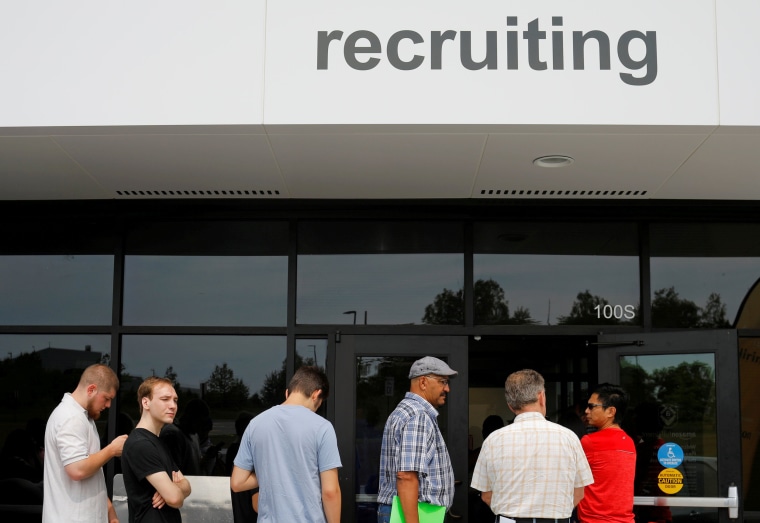Job growth hit a milestone Friday under the Trump administration as American employers added another 200,000 positions in January for a record 88 months of consecutive hiring increases, the Labor Department reported.
The number is an uptick from December’s revised increase of 160,000 jobs.
Economists were most keenly watching not the number of jobs but how much more people are being paid to do them.
Wages increased at 2.9 percent versus last year.
The increase in average hourly earnings was the fastest of the recovery so far, raising hopes that the tide was finally turning. However, wage growth acceleration has surged forward at different times during the economic upswing, only to fall back again.
Despite the streak of overall employment gains that began six years before President Donald Trump took office, wage growth has remained stubbornly tepid.
Any increase is good for workers but the uptick is barely enough to keep pace with inflation, or how much more everything costs, which stands at an estimated 2.38 percent. This minimizes the impact of any nominal wage increases. If you’re getting paid $3 more but your groceries also cost $2.75 more you’re not really getting ahead.
Following the business-first GOP tax cut in December, employers opted to give workers one-time bonuses — but not pay raises — and pledged to invest in hiring and capital improvements. Tax experts also expect companies to invest in stock buybacks and dividends, rewarding shareholders but not necessarily employees.
Despite the tax cut windfall, employers have also been reluctant to spend down their record cash reserves on pay raises, which would raise their overall liabilities on an ongoing basis.
Many of the announced numbers largely include spending the companies were planning to do anyway. And much of that investment is going toward automation, which is destroying jobs faster than the economy can retrain displaced workers.
The unemployment rate remained unchanged at 4.1 percent. The U-6, or "real unemployment" rate, went up a tenth of a percent, to 8.2 percent.
